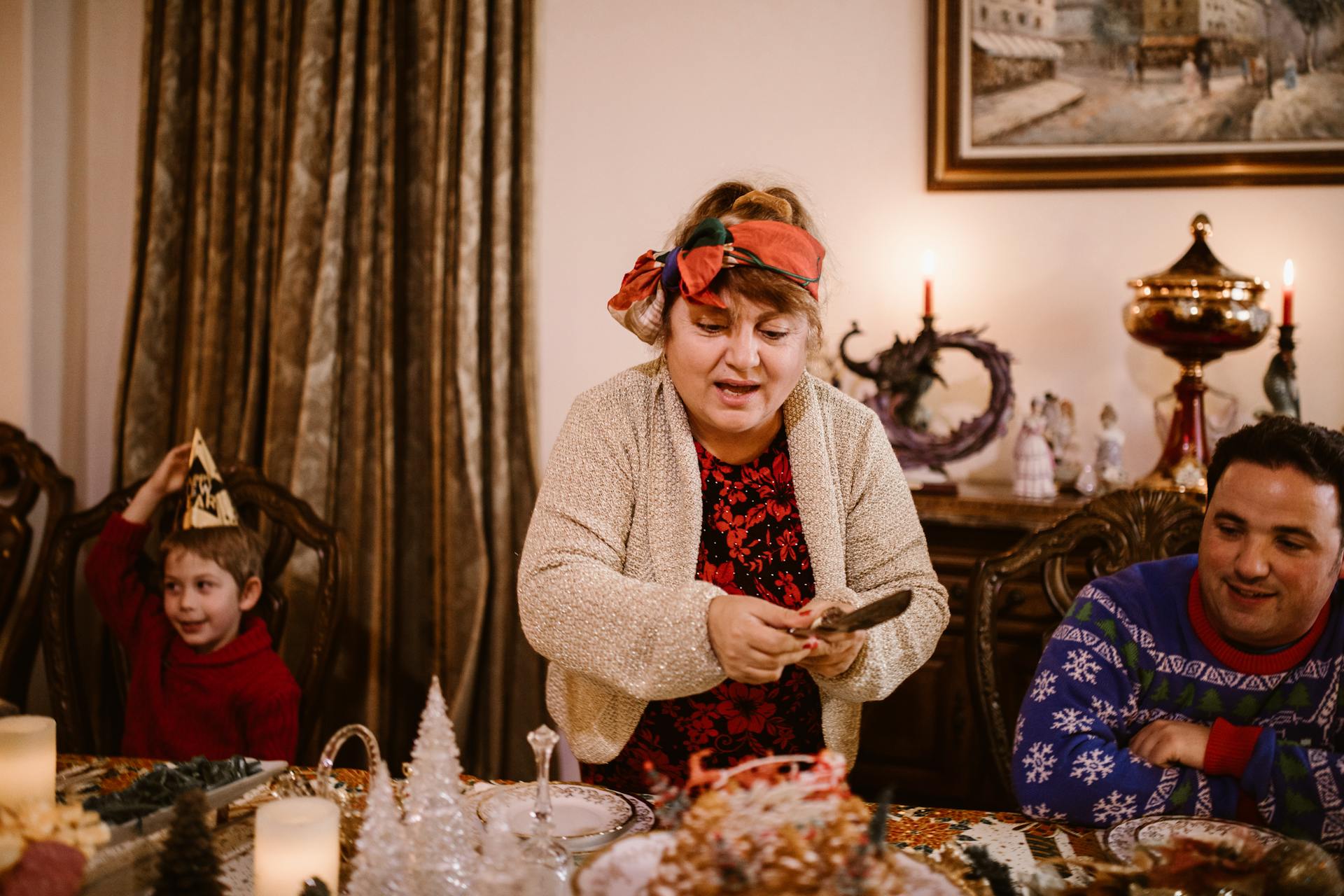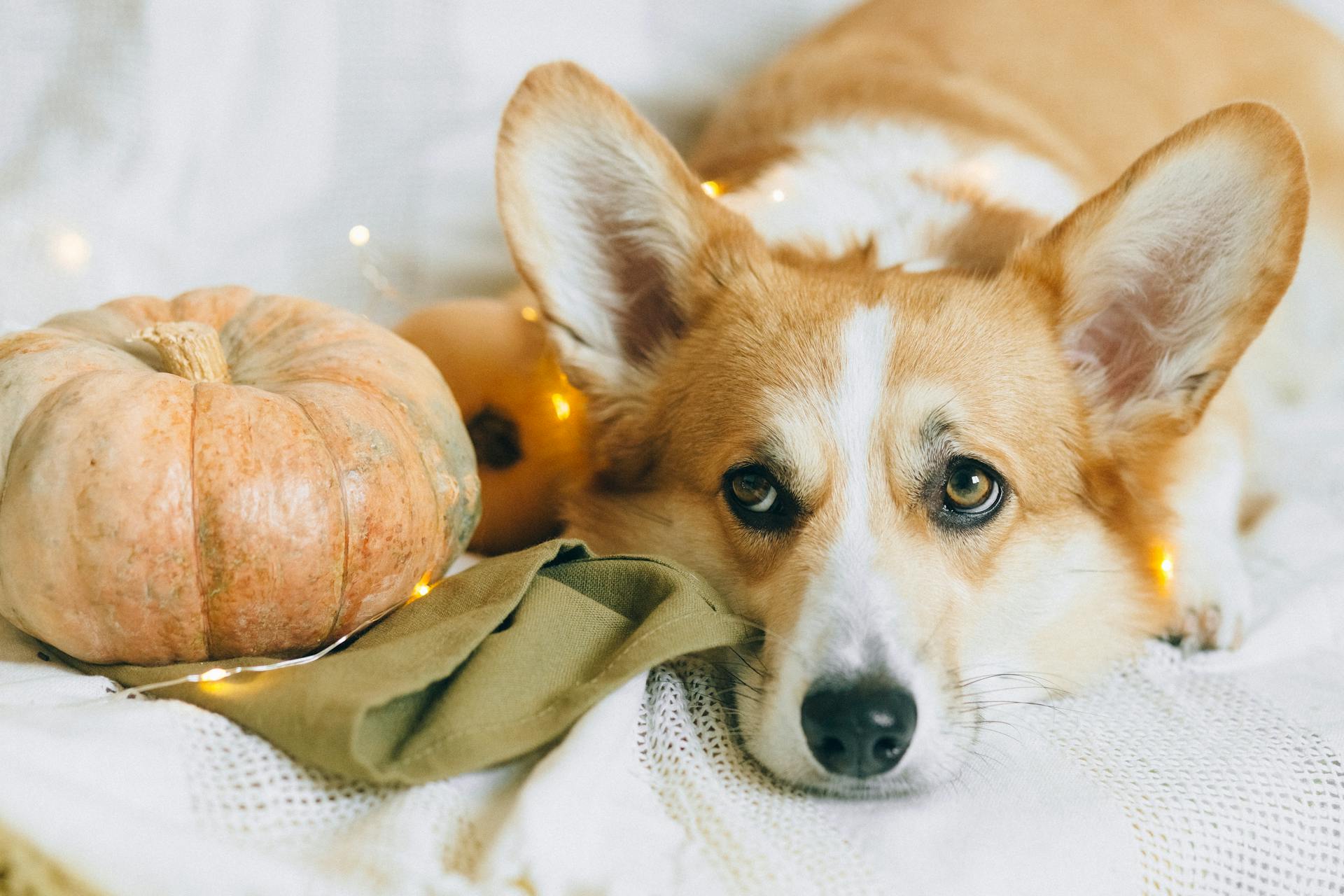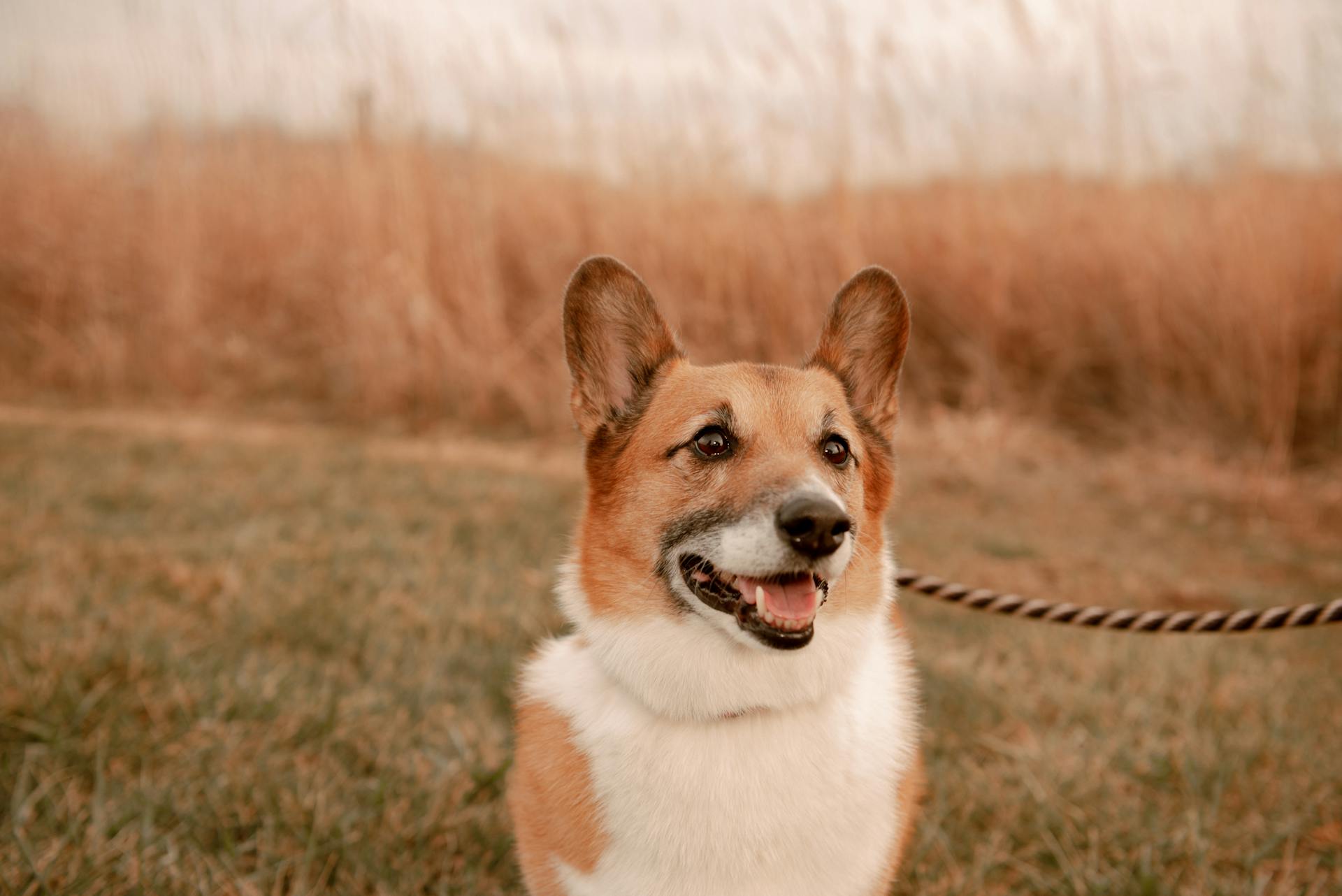
The Cardigan Welsh Corgi is a beloved breed, but it's essential to consider the costs and responsibilities involved in owning one. On average, you can expect to pay between $1,000 to $3,000 for a puppy from a reputable breeder.
Cardigan Welsh Corgis are a relatively healthy breed, but like all breeds, they can be prone to certain health issues. Hip dysplasia, a common issue in many breeds, can be a concern for Cardigan Welsh Corgis.
Pet Care
Taking care of a Cardigan Welsh Corgi is a big responsibility, but with the right information, you'll be well-prepared to give your furry friend the best life possible.
The cost of caring for a Cardigan Welsh Corgi can vary depending on several factors, such as the dog's age, health, and lifestyle. Here are some estimated costs to consider:
- Purchase price: The average cost of a Cardigan Welsh Corgi puppy from a reputable breeder is around $1,500 to $2,500.
- Food and treats: High-quality dog food can cost between $20 to $60 per month depending on the brand and size of the bag.
- Veterinary care: Regular vet check-ups can cost anywhere from $50 to $200 per visit, while emergency veterinary care or surgeries can cost thousands of dollars.
To keep your Cardigan Welsh Corgi healthy and happy, regular grooming is essential. A good rule of thumb is to brush your Cardigan at least once a week to remove loose hair, prevent potential tangles, and distribute natural skin oils throughout the coat.
Cardigan Welsh Corgis are double-coated with a thick and fluffy undercoat and smooth yet coarse outer coat. They shed heavily in the spring and fall, so be prepared for regular brushing during these seasons.
To keep your Cardigan Welsh Corgi's coat looking its best, here are some grooming essentials to consider:
- Brush your Cardigan at least once a week to remove loose hair and prevent tangles.
- Bathe your Cardigan only when necessary, as overbathing can strip the coat of its natural oils.
- Trim your Cardigan's nails every couple of weeks to prevent overgrowth.
- Clean your Cardigan's ears periodically to prevent infections.
- Brush your Cardigan's teeth regularly to ensure good oral hygiene.
By following these grooming tips and being mindful of the costs associated with caring for a Cardigan Welsh Corgi, you'll be well on your way to giving your furry friend the best life possible.
Health
Cardigan Welsh Corgis are generally a healthy breed, but like all breeds, they can be prone to certain health issues. Some of the most common health problems that affect Cardis include hip dysplasia, which can lead to arthritis and lameness.
Hip dysplasia is a condition where the hip joint doesn't develop properly, and it's considered a low-risk health issue for Cardigans. The cost to diagnose and treat hip dysplasia can range from $1,500 to $6,000.
Intriguing read: Hip Dysplasia Bernese Mountain Dog
Intervertebral disc disease (IVDD) is another common health issue that affects Cardigans. This condition occurs when the discs between the vertebrae in the spine become compressed or herniated, leading to pain, weakness, and sometimes paralysis.
IVDD is a medium-risk health issue for Cardigans, and the cost to diagnose and treat it can range from $2,500 to $7,000. Dogs with short legs and long backs, like Cardigans, are at higher risk for IVDD.
Cardigans are also prone to progressive retinal atrophy (PRA), a genetic condition that causes progressive degeneration of the retina, which can eventually lead to blindness. Genetic screening testing is available for PRA.
Regular veterinary check-ups and screenings can help identify any potential health issues early on, and breeders who prioritize health testing can help reduce the risk of these issues.
Readers also liked: Ivdd in Corgis
Cost and Ownership
The cost of owning a Cardigan Welsh corgi can be around $1,500 to $2,500 for the purchase price alone, depending on whether you buy from a reputable breeder or adopt from a shelter.
Food and treats can add an extra $25 to $75 per month to your expenses, with high-quality dog food costing between $20 to $60 per month and treats adding an additional $5 to $15 per month.
Regular vet check-ups can cost anywhere from $50 to $200 per visit, while emergency veterinary care or surgeries can cost thousands of dollars.
Take a look at this: Bernese Mountain Dog 8 Weeks Old
Pet Insurance
Pet insurance is a crucial aspect of owning a Cardigan Welsh corgi. The average cost of pet insurance for Cardigan Welsh corgis is higher than for mixed breed dogs due to their increased risk of hereditary conditions.
The cost of pet insurance can vary depending on several factors, including the age and health of your dog. Regular veterinary check-ups can cost anywhere from $50 to $200 per visit, and emergency veterinary care or surgeries can cost thousands of dollars.
Pet insurance can help reduce out-of-pocket expenses and provide financial protection against unexpected medical bills. A pet savings account is also an excellent way to prepare for expenses, but it's not a substitute for pet insurance.
Here are some estimated costs associated with pet insurance for Cardigan Welsh corgis:
The best time to get pet insurance for your Cardigan Welsh corgi is when he's a healthy puppy. This way, you can ensure that you're covered for any potential health issues that may arise in the future.
Cost of Caring
The cost of caring for a Cardigan Welsh corgi can vary depending on several factors, such as the dog's age, health, and lifestyle.
The average cost of a Cardigan Welsh corgi puppy from a reputable breeder is around $1,500 to $2,500. Adoption fees at shelters or rescues may be less expensive.
Food and treats can add up quickly, with high-quality dog food costing between $20 to $60 per month, and treats adding an additional $5 to $15 per month.
Regular vet check-ups can cost anywhere from $50 to $200 per visit, while emergency veterinary care or surgeries can cost thousands of dollars.
Suggestion: 4 Month Staffordshire Bull Terrier
Annual vaccinations and preventive medications, such as heartworm prevention, will also add to the overall cost.
Health insurance may be a way to reduce out-of-pocket expenses and provides the greatest benefits to corgi owners who sign up their pets early.
Here's a rough breakdown of the estimated monthly costs:
Training and Behavior
Cardigan Welsh Corgis are highly intelligent and eager to please, making them receptive to training. This breed excels in dog sports like agility, flyball, and obedience.
Early socialization and puppy training classes are beneficial for this breed. Gentle, positive training methods work best, and consistency is key. They learn quickly and will respond to kind, firm, consistent training.
With a medium energy level, Cardigans need daily walks and mental stimulation to prevent boredom. They can be prone to excessive barking if not taught when to turn the sound on and off. A securely fenced yard is a must, but when the family is home, they should be in the house with them.
Traits and Behavior
Cardigan Welsh Corgis are known for their playful temperament and larger-than-life personality, making them excellent family pets. They thrive on attention and affection from their family members.
These dogs are naturally attentive, which can make them excellent watchdogs that alert their owners to any sign of trouble. However, this also means they may need to be taught to stop excessive barking, especially if you live in an apartment.
Cardigans are highly intelligent and trainable, responding well to positive reinforcement techniques such as praise, play, and food rewards. They learn quickly and will respond to kind, firm, consistent training.
A Cardigan Welsh Corgi's energy level is medium, meaning they need regular exercise but don't require as much as some other breeds. Daily walks and playtime are sufficient to keep them happy and healthy.
Here's a breakdown of the breed's characteristics:
Cardigans are naturally protective of their family and may bark at strangers or other animals, but proper socialization can help them warm up to new people and pets.
Ease of Training
Cardigan Welsh Corgis are highly trainable due to their intelligence and eagerness to please. They thrive on positive reinforcement training methods, such as praise, play, and food rewards.
Their independent streak means consistent training is essential, but the results are well worth the effort. Early socialization and puppy training classes can be beneficial for this breed.
Cardigan Welsh Corgis learn quickly and respond well to kind, firm, and consistent training. They are receptive to training, making them a joy to work with.
Here are some key takeaways for training a Cardigan Welsh Corgi:
Their intelligence and trainability make them well-suited for dog sports like agility, flyball, obedience, and herding. With patience and persistence, you can teach your Cardigan Welsh Corgi a wide range of skills and activities to enjoy together.
Pembroke vs
Pembroke Welsh Corgis are generally smaller and lighter than their Cardigan counterparts.
Their short tails can sometimes get in the way during training, but with patience and consistency, they can learn to navigate around them.
Cardigans, on the other hand, have long, bushy tails that can be a great asset during agility training.
Both breeds have a strong herding instinct, but Cardigans tend to be more independent and stubborn at times.
Pembrokes, with their more pointed ears, are often more responsive to commands and easier to train.
Despite their differences, both breeds are highly intelligent and capable of learning a wide range of commands and behaviors.
History and Origin
The Cardigan Welsh Corgi has a rich history that spans over 3,000 years, with its origins dating back to 1200 B.C. when the Celts migrated to Wales in the British Isles.
The breed was originally used as a cattle herder and guardian, valued for its intelligence, agility, and loyalty. The Cardigan Welsh Corgi's name comes from the ancient kingdom of Cardiganshire and is a variation of the Celtic word for "dog."
In Britain, Cardigans and Pembrokes were considered a single breed until 1934, but the first pair of Cardigans arrived in the U.S. in the early 1930s and were officially recognized as a breed by the American Kennel Club in 1935.
Breed Standards

Breed Standards play a crucial role in defining the characteristics of a breed. Each organization has its own set of standards for the Cardigan Welsh Corgi.
The American Kennel Club (AKC) has its own breed standard, which outlines the ideal characteristics of the Cardigan Welsh Corgi. This standard serves as a guide for breeders and owners alike.
Here are the breed standards for the Cardigan Welsh Corgi from various kennel clubs:
These breed standards ensure consistency across different regions and help maintain the integrity of the breed.
History
The Cardigan Welsh Corgi's history dates back to medieval times, with some estimates placing its origins as far back as 1200 B.C. during the Celtic migration to Wales.
Their name comes from the ancient kingdom of Cardiganshire, a variation of the Celtic word for "dog." The breed was highly valued for its intelligence, agility, and loyalty, making it a staple on Welsh farms.
As one of the oldest herding breeds, the Cardigan Welsh Corgi's story spans over a thousand years. Its ancestors were introduced to Wales by Celtic tribes during their migration around 1200 BC.

The breed was primarily used to herd cattle, with its compact stature allowing it to nip at the heels of cows and quickly sidestep any retaliatory kicks. Their agility and sharp intellect made them an irreplaceable presence on the farm.
Cardigans were considered a single breed with the Pembroke Welsh Corgi until 1934, but the first pair of Cardigans arrived in the U.S. in the early 1930s and were recognized as a breed by the American Kennel Club in 1935.
The breed was first brought to the United States in 1932 and eventually gained recognition from the American Kennel Club in 1935. Today, you can find a list of reputable breeders at the American Kennel Club's website.
Pembroke Variations
The Pembroke Welsh Corgi is a beloved breed with some interesting variations. They are typically smaller and lighter-boned than the Cardigan Welsh Corgi.
Their tail is usually docked, but some are born tailless. This can be a result of their breeding history, which involved the intermingling of Cardigan Welsh Corgis with spitz-type dogs brought by the Vikings.
Pembrokes are often considered more outgoing than the Cardigan Welsh Corgi, which can be reserved with strangers. This makes them great companions for families with children or for people who enjoy socializing with their dogs.
In terms of color, Pembrokes have a more limited range than the Cardigan Welsh Corgi. They are often red, sable, or fawn, but their coats can also come in a variety of other colors.
Appearance
The Cardigan Welsh Corgi's appearance is quite distinctive. They have a short stature with long, stocky frames, which can be deceiving as they're quite agile and speedy.
Their fox-like faces are alert and gentle, with bushy, low-set tails that shoot up when they're excited. A confident bark is also a characteristic of this breed.
Cardigan Welsh Corgi ears are erect with slightly rounded tips and are large in proportion to their small size. Their eyes are wide-set, moderately large, and dark, with dark rims and a gentle, friendly expression.
Curious to learn more? Check out: Big Mountain Dogs
The nose is black for all Cardigan colors, though blue merles can also sport patches of light pink. Their coat is double-layered, with a thick, medium-length outer coat that's slightly thicker near the ruff, thighs, and tail.
Their coat colors come in shades of red, sable, and brindle, as well as black and blue merle. Patches of white are common on parts of the head, neck, chest, legs, and tail.
Here are the standard colors of the Cardigan Welsh Corgi breed:
The Cardigan Welsh Corgi's coat may be all shades of red, sable, brindle, black, and blue merle, with or without tan or brindle points. White is acceptable on the muzzle, neck, chest, legs, underparts, and tip of tail.
Frequently Asked Questions
How much does a Cardigan Corgi puppy cost?
A Cardigan Corgi puppy from a reputable breeder costs between $1,500 to $2,500, while adoption fees can be lower. Additionally, monthly expenses for food and treats can range from $20 to $60.
Are Cardigan Corgis rare?
Yes, Cardigan Corgis are a relatively rare breed, originating from a heritage of older, selectively bred dogs. Their unique history and limited breeding has contributed to their scarcity.
Sources
- https://www.thesprucepets.com/cardigan-welsh-corgi-dog-breed-profile-4782025
- https://www.embracepetinsurance.com/dog-breeds/cardigan-welsh-corgi
- https://be.chewy.com/dog-breed/cardigan-welsh-corgi/
- https://showsightmagazine.com/dog-breeds/cardigan-welsh-corgi/
- https://betterpet.com/cardigan-welsh-corgi/
Featured Images: pexels.com


